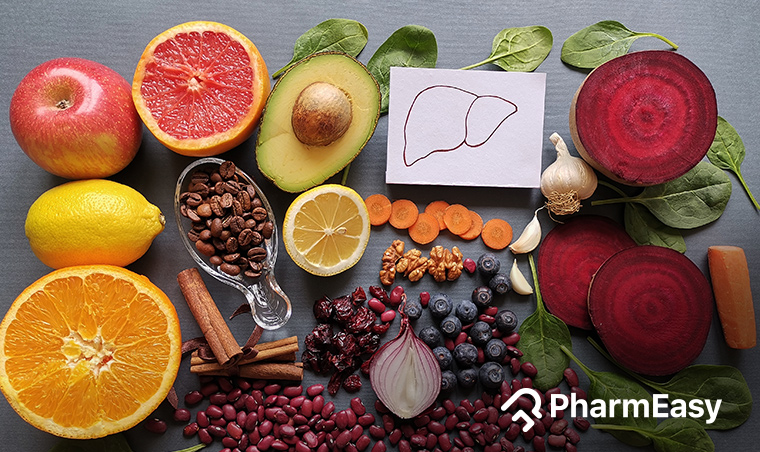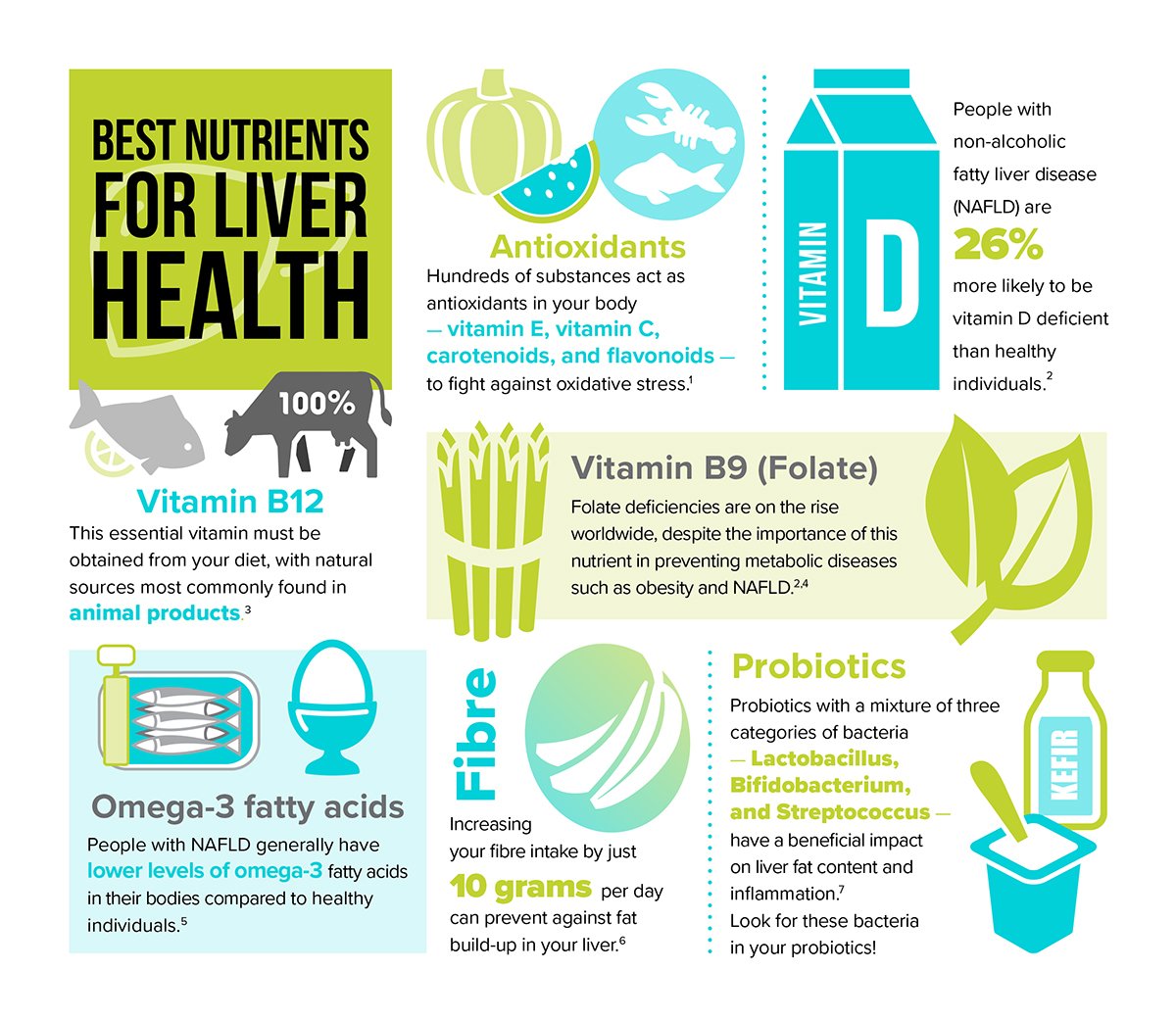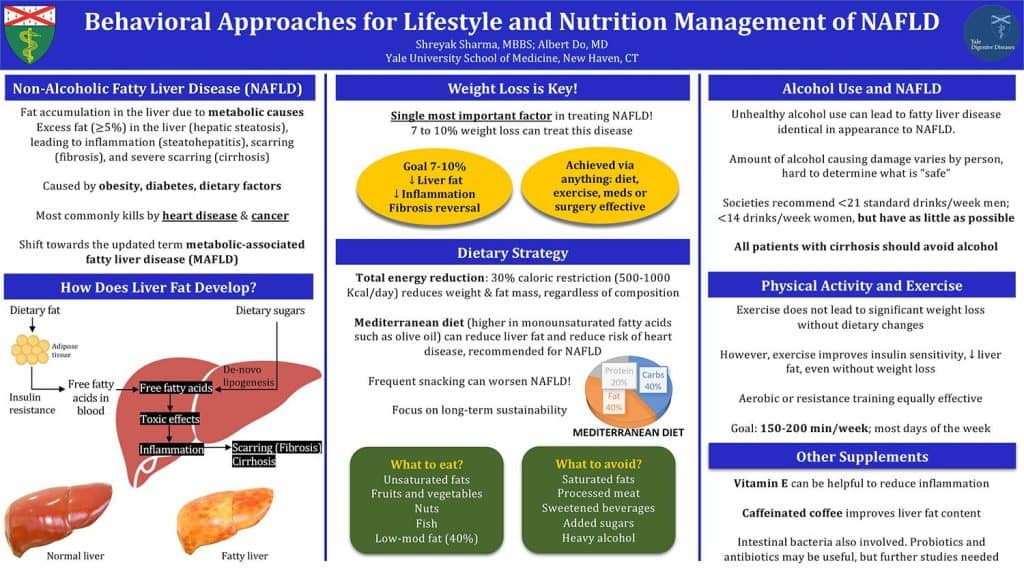Table of Contents
Introduction to Fatty Liver
Fatty liver, or hepatic steatosis, is a common, but often overlooked health concern affecting a significant portion of the global population. It’s a condition characterized by an excessive accumulation of fats in liver cells, which can have damaging effects.
Understanding Fatty Liver and its causes
Fatty liver is commonly associated with an unhealthy diet, sedentary lifestyle, and prolonged alcohol consumption. However, even those who abstain from alcohol can develop Non-Alcoholic Fatty Liver Disease (NAFLD). This happens due to insulin resistance leading to increased fat accumulation in the liver.
Essential steps to prevent fatty liver include maintaining a healthy lifestyle, balanced diet, regular exercise, and moderation in alcohol consumption. Here are a split ten tips to aid in preventing fatty liver.
1. Healthy Diet: Incorporate balanced portions of protein, fiber, fruits, and vegetables into your diet.
2. Hydrate: Drinking lots of water aids digestion and prevents fat concentration.
3. Limit Alcohol: Cut down alcohol intake.
4. Regular Exercise: Physical activities help to burn fat and maintain a healthy body weight.
5. Avoid Unhealthy Fats: Reduce saturated fats to limit liver’s fat production.
6. Control Blood Sugars: High blood sugar levels contribute to fat buildup.
7. Avoid Processed Foods: They often contain hidden added sugars.
8. Maintain Healthy Weight: Obesity increases the risk of fatty liver.
9. Regular Check-ups: Routine liver function tests can detect early signs.
10. Limit Salt: High sodium intake enhances water retention and causes liver stress.

Signs and symptoms of Fatty Liver
Fatty liver develops silently, with no clear symptoms in the early stages. However, symptoms may appear as the condition progresses including tiredness, loss of appetite, weight loss, and abdominal discomfort. If you experience these symptoms, reach out to a medical professional. Get to know your liver and prioritize its health.

Diet and Nutrition Tips
Preventing a fatty liver begins with the basic building block of life—food. In many instances, fatty liver disease comes about as a result of dietary choices. Taking the effort to incorporate wholesome foods that are high in nutrition value and regulating portions can make a significant difference.
1. Eating a balanced diet
A rule of thumb in promoting liver health is eating a balanced diet. This includes ensuring your meals contain a healthy mix of proteins, carbs, and fats. Particularly, lean proteins from plants and animals, complex carbs from whole grains and starchy vegetables, and healthy fats from avocados, nuts, and seeds should form an integral part of your meals. Also, incorporating a variety of fruits and vegetables ensures a wide range of vitamins and fiber, indispensable for a healthy liver.
2. Avoiding high-fat and processed foods
Another recommendation is to gradually cut down on the consumption of high-fat and processed foods. These food items are typically high in unhealthy fats and added sugars – both of which exacerbate the chances of fatty liver disease. They pose a strain on the liver, negatively impacting its ability to function optimally.
To eliminate these risks, replacements with healthier alternatives are encouraged. Here’s a suggestion: instead of high-fat meats, opt for lean proteins such as poultry, fish, and tofu. Replace fried, packaged snacks with wholesome homemade ones that are made from whole grains, fruits, and vegetables. Swapping sugary beverages for water, unsweetened tea or homemade fruit infusions could be another practical solution.
| Diet Tip | Insight |
|---|---|
| Eat a balanced diet | Incorporate a mix of proteins, carbs, and fats. Favor lean proteins, complex carbs, and healthy fats. Include fruits and vegetables for vitamins and fiber. |
| Avoid high-fat and processed foods | Cut down on food high in unhealthy fats and added sugars. Opt for lean proteins, wholesome snacks, and healthier beverages. |
These considerations imply adopting a new eating habit, but remember, change is a gradual process. Be patient with yourself, and the benefits to your liver health will follow in due course.

Lifestyle Changes
Bringing about lifestyle modifications is the first step on the roadmap to health, particularly in circumventing fatty liver disease. Some of these changes might seem quite evident, but their additional benefits are immeasurable when it comes to the overall prosperity of one’s body.
1. Maintaining a healthy weight
Obesity has often been linked to a higher risk of developing fatty liver disease. Therefore, shedding excess pounds becomes crucial in averting this health risk. Not only does proper weight management keep liver disease at bay, but it also helps deal with multiple other health implications. By striving to maintain a balanced and nutritious diet, one can aid in preventing the onslaught of this disease. But, keep in mind, it’s not about drastic weight loss but slow and steady changes that promote healthier living.
2. Exercising regularly
Regular physical activities are akin to the elixir of health. Engaging in routine exercise not only aids in weight control but also helps in reducing excess fat in the liver. Activities can range from brisk walks, yoga, swimming to more high-intensity workouts like cycling or aerobics. Remember, it’s not about transforming overnight, but about adopting a consistent schedule of at least 30 minutes of workout per day.
In conclusion, these two vital lifestyle changes are the building blocks to prevent fatty liver and alleviate overall health. Along with these, incorporating daily hydration, significant reduction or elimination of alcohol, and routine medical check-ups could significantly lower the threat of developing fatty liver disease.

Limiting Alcohol Consumption
Dealing with fatty liver requires a multifaceted approach, and among the ways to tackle this health concern is by limiting alcohol consumption. Understanding why this is necessary, taking a deeper dive into the effects of alcohol on the liver is critical.
1. Effects of alcohol on the liver
When alcohol is consumed in excess amounts, it puts immense strain on the liver. The liver, responsible for breaking down and eliminating alcohol from the body, can get severely damaged when it continually processes alcohol. Over time, a condition known as Alcoholic Fatty Liver Disease (AFLD) can develop. In AFLD, fat builds up in the liver, causing inflammation, liver scarring, or even liver failure if not addressed promptly.
2. Tips for reducing alcohol intake
Reducing alcohol intake doesn’t necessarily mean quitting altogether. Here are some practical pointers:
1. Self-regulation: Limit the amount of alcohol consumed. The liver can only process a limited amount of alcohol at a time, and exceeding this threshold can lead to damage.
2. Pace and Space: This involves pacing your drinks and ensuring to space them out. Drinking water or soda between alcoholic drinks can help limit alcohol intake while keeping dehydration at bay.
3. Alternate Days: Attempt to have alcohol-free days during the week, lessening the continuous burden on your liver.
4. Seeking Help: If the need arises, seeking professional help from therapists or support groups can be beneficial.
These simple yet effective tips towards limiting alcohol consumption can considerably help in preventing fatty liver disease. Staying committed to this lifestyle change can make a significant difference in maintaining a healthy liver and overall well-being.

Managing Diabetes and Metabolic Syndrome
Fatty liver disease is a silent but dangerous enemy. You may not know you have it until it’s too late. Fatty liver disease can be lethal if not managed well. Making smart choices can help reduce risk factors associated with this condition.
1. Importance of managing diabetes
Diabetes management plays a critical role in preventing fatty liver. Medics recommend keeping sugar levels under control to keep your liver healthy. Lifestyle changes like weight management, a balanced diet, physical exercise, alongside proper medication, are huge determinants in managing diabetes and subsequently averting fatty liver disorders.
2. Tips for preventing metabolic syndrome
Metabolic Syndrome refers to a combination of conditions like high blood pressure, high blood sugar levels, obesity, and abnormal cholesterol levels. These conditions spike the risk for a fatty liver, heart disease, and type 2 diabetes. Fortunately, measures can be initiated to prevent metabolic syndrome.
A. Maintain a Healthy Weight: Obesity is significantly linked to metabolic syndrome. Hence, maintaining a healthy weight becomes imperative in preventing this condition.
B. Stay Active: Engage in physical activities regularly. Exercise will help maintain body weight and lower the risk of metabolic syndrome.
C. Eat Right: A diet rich in lean proteins, whole grains, fruits, vegetables, and low-fat dairy can help prevent metabolic syndrome.
D. Kick Bad Habits: Avoid tobacco and limit alcohol intake.
Office of the Surgeon General’s report on Healthy People 2020 provides additional tips. Make preventive visits to your healthcare provider, regularly check cholesterol levels, and maintain your blood pressure within the recommended range.
These lifestyle changes go a long way in preventing and managing liver disease, setting you on the path of a healthier and longer life.

Avoiding Medications That Harm the Liver
Fatty liver disease is a serious condition that affects the liver’s ability to operate appropriately. In the course of day-to-day life, people inadvertently consume substances that can have adverse effects on liver health. Notably, certain medications can contribute to these detrimental impacts. Consequently, being cognizant of problematic substances and seeking safer alternatives is a crucial step toward preventing fatty liver disease.
1. Medications to watch out for
Several over-the-counter and prescription medications can lead to unwanted liver damage. Among these, some types of non-steroidal anti-inflammatory drugs (NSAIDs) and certain antibiotics can put undue pressure on the liver. In addition, high doses of acetaminophen, a common active ingredient in many medicines, can be toxic to the liver. Moreover, long-term use of steroids and some psychiatric medications are linked with liver disease.
2. Safer alternatives to protect liver health
Switch to Non-Drug Pain Relievers: Opt for non-drug pain relief methods like physical therapy, acupuncture, or exercise to minimize dependence on potentially harmful pain relievers.
Take Acetaminophen Carefully: If acetaminophen is necessary, stick to the recommended dosage, as excessive use can be harmful to the liver.
Incorporate Supplements: Adding liver-friendly supplements like milk thistle, turmeric and Vitamin E could support liver health.
Lead a Healthy Lifestyle: Adopting a healthy diet and regular exercise regimen can immensely benefit liver function.
Remember, prevention is better than cure. Therefore, it is beneficial to modify lifestyle factors, such as eating a balanced diet, maintaining a healthy weight, limiting alcohol consumption and engaging in regular physical activity, to avoid fatty liver disease.

Herbal Remedies and Supplements
Being diagnosed with a fatty liver can be a major life-changing event, one that calls for significant lifestyle modifications. Foremost among these is the choice of adopting a healthy dietary regime. One such way to manage this condition and foster a healthy liver is by using herbal remedies and supplements.
1. Natural remedies for a healthy liver
Natural remedies and supplements come packed with liver-friendly nutrients. Like curcumin, the active component in turmeric, is widely acknowledged for its anti-inflammatory and antioxidant benefits. It aids in combating liver inflammation and damage.
Milk Thistle, known as Silybum marianum, is another renowned remedy. It contains silymarin, an antioxidant that helps protect the liver from toxins.
Omega-3 fatty acids, found in fish oils, are essential for heart and liver health. These decrease levels of triglycerides, reducing liver fat.
2. Precautions when using herbal supplements
While these herbs and supplements provide benefits, they should be taken under proper guidance. Without medical supervision, indiscriminate consumption could lead to adverse effects.
Furthermore, these should not substitute a balanced diet and exercise. Reducing intake of high-calorie meals, processed food and sugar, coupled with regular physical activity, greatly aids in managing a fatty liver.
For individuals suffering from underlying medical conditions or taking certain medications, a consultation with a health professional before starting any herbal supplement is strongly recommended. Use this article as a guide, but do remember that individual needs and responses to herbal remedies vary.
Through a combination of diet, exercise, and herbal supplements, managing a fatty liver and maintaining a healthy liver can become far more attainable.

Regular Physical Check-ups
It is no secret that prevention is better than cure. With the lifestyle diseases on the rise, such as fatty liver, proactive measures can go a long way in maintaining a healthier life. This proposition is where the importance of regular physical check-ups becomes evident.
1. Importance of regular health check-ups
Regular health check-ups pave the way for early detection of potential health issues. They simplify the treatment procedure by catching diseases in their preliminary stages, making them crucial for staying ahead of fatty liver disease. These check-ups also serve as the perfect opportunity to discuss any issues or concerns with your healthcare provider, helping you make well-informed decisions about your lifestyle and diet.
2. Tests for monitoring liver health
Monitoring liver health requires specific tests and check-ups such as blood tests, liver function tests, and imaging procedures. These screenings play a pivotal role in detecting liver diseases early.
- Blood Tests: Common blood tests include ALT (Alanine AminoTransferase) and AST (Aspartate AminoTransferase), which help assess the liver’s performance.
- Liver Function Tests: Liver function tests assess the liver’s general health and detect any damage or disease. They typically test bilirubin levels, ALT and AST levels, albumin level, and prothrombin time.
- Imaging Procedures: Imaging procedures such as MRI, CT scan, and ultrasound procedures can offer a more comprehensive view of the liver and help detect any abnormalities.
Here is a quick table summarizing the various tests for monitoring liver health:
| Test | Brief Description |
|---|---|
| Blood Test | Assesses liver performance by checking levels of ALT and AST |
| Liver Function Test | Tests overall liver health and can detect damage or disease |
| Imaging Procedures | MRI, CT scans, and ultrasounds can reveal abnormalities in the liver |
Remember, a regular regimen of health check-ups can counteract many potential health challenges, and fatty liver is no exception. Take control to maintain your health before it becomes a severe concern.

Stress Management
The pursuit of healthy living often overlooks a significant part of well-being – managing stress. One might not think about it, but intense stress levels can have a detrimental impact on liver health.
1. Impact of stress on liver health
Chronic stress and the liver have a sinister connection. Research suggests that prolonged stress can alter liver metabolism and increase susceptibility to non-alcoholic fatty liver disease (NAFLD), the most prevalent chronic liver condition globally. Put simply; stress can be a leading contributor to fatty liver, even in the absence of alcohol.
2. Tips for reducing stress levels
Preventing fatty liver involves lowering stress levels. The good news is, many ways to mitigate stress are readily available and easy to integrate into daily life.
1. Exercise: Regular physical activity helps stimulate the production of brain chemicals that make a person feel happier, relaxed and less anxious.
2. Adequate Sleep: Quality sleep is just as crucial as regular exercise. Proper sleep helps the body recover, reducing the chance of stress-induced liver damage.
3. Healthy Diet: Eating a balanced diet rich in fruits, vegetables, lean protein, and whole grains can help maintain optimum liver function.
4. Stay Hydrated: Drink plenty of water to flush out toxins and support overall liver health.
5. Limit Alcohol: Alcohol can damage or destroy liver cells and scar your liver. Talk to your doctor about what amount of alcohol is right for you.
6. No Smoking: The toxic chemicals in cigarettes harm liver cells and may lead to inflammation and scarring.
7. Regular Check-ups: Routine medical check-ups can help keep your liver health in check and warn you of any impending problems.
8. Limit Exposure to toxins: Toxins can injure liver cells. Practice safe guidelines when dealing with chemicals at home or work.
9. Maintain a Healthy Weight: Obesity can cause fatty liver and other health complications.
10. Practice Mindful Relaxation: Mindfulness, yoga, and deep-breathing exercises can help reduce stress and enhance liver health.
Adapting these tips can help in preventing fatty liver disease and promote overall liver health.

Conclusion
It’s a common misconception that fatty liver is an age-related predicament. The truth is, it can affect everyone, regardless of age, and relying on your youth as a protective factor is not sufficient. There are several proven strategies to circumvent the onset of this condition.
Summary of key tips for preventing fatty liver
Maintenance of a healthy weight is a vital step in preventing the onset of fatty liver. Optimum weight can be achieved by practicing regular physical activity and following balanced diet plans.
Limitation of sugar intake, especially refined sugars, plays a role in mitigating the risk of the development of fatty liver.
Healthy hydration habits are also important. Drinking water throughout the day helps the liver function optimally by flushing out toxins.
Moderate consumption of alcohol, or better yet, abstaining from it can also alleviate the burden on the liver.
Regular check-ups should be a part of your routine, aiming to detect any potential anomalies in liver function tests.
Additionally, ensure to take medications as directed, particularly those that can affect liver function, and consider supplementing your diet with liver-friendly foods such as walnuts, coffee, and broccoli.
Common myths and misconceptions about fatty liver prevention
One prevailing myth revolves around the misguided belief that only excessive drinking causes liver diseases. In reality, a poor diet and sedentary lifestyle can also contribute significantly to the development of fatty liver.
Also, there’s a misconception that liver damage is irreversible. However, early detection and lifestyle modifications can halt or even reverse some liver conditions.
With these insights about fatty liver prevention, everyone should feel empowered to make lifestyle choices that support good liver health.